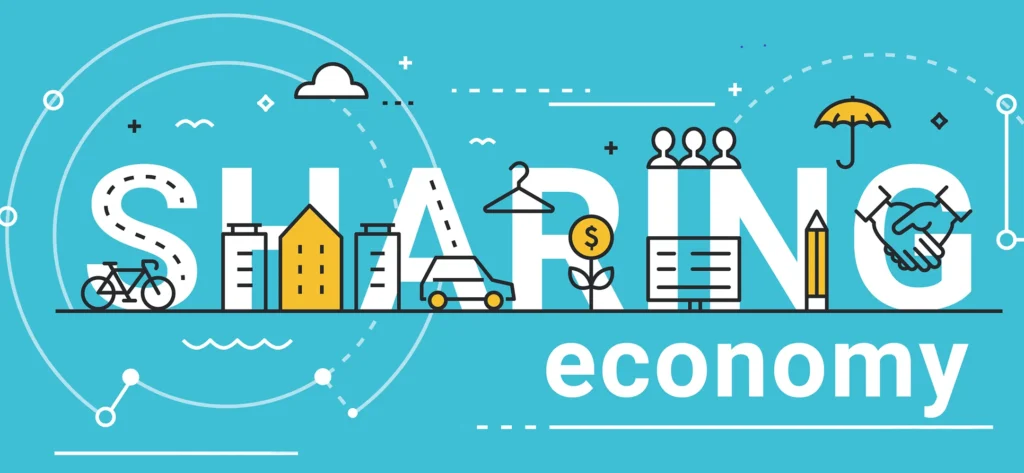
Personal Data Monetization: Earning from Sharing Your Digital Footprint
Digital marketing
Introduction:
In today’s digital age, our every online move, from the websites we visit to the products we buy, leaves behind a trail of data known as our digital footprint. This footprint, often seen as a mere byproduct of our online activities, is a goldmine of Information eagerly sought after by companies and marketers worldwide. Welcome to the world of “Personal Data Monetization: Earning from Sharing Your Digital Footprint.” This intriguing topic delves into the art of turning your digital presence into a source of income. Imagine capitalizing on the data you generate daily, effectively converting your online interactions into money in the bank. But beneath this promise of financial gain lies a complex landscape of ethical, legal, and security considerations.
Throughout this article, we will navigate the intricacies of personal data monetization, unraveling its inner workings, exploring the legal and ethical aspects, and providing you with strategies to maximize your earnings while ensuring your data’s safety. We’ll also showcase inspiring success stories and examine the ever-evolving trends in this dynamic field. So, whether you’re curious about the opportunities presented by data monetization or eager to embark on a journey to profit from your digital presence, this exploration is your gateway to understanding and harnessing the power of sharing your digital footprint for financial gain.
Data Monetization Platforms, Where to Turn Your Digital Footprint into Cash
1. How Data Monetization Works
Data monetization is a fascinating concept that allows individuals to transform their digital footprint into a source of income. It involves leveraging data, which can be in the form of customer information, transaction records, sensor data, or any other data generated by an organization, to create new revenue streams or enhance existing ones. Organization can also use the data to personalize ads and offers for their customers, which can lead to the increased sales
At its core, it involves collecting, analyzing, and selling the data generated by your online activities. Here’s a step-by-step breakdown of how this process works:

a. Data Collection:
It all starts with data collection. You generate data every time you engage with the internet, whether through web searches, social media posts, or online purchases. This data includes your preferences, behaviors, and interests.
b. Data Aggregation:
To make this data valuable, it needs to be aggregated and organized. Companies and data brokers gather data from multiple sources, creating comprehensive profiles of individuals based on their online behavior.
c. Data Analysis:
Once aggregated, this data undergoes thorough analysis. Advanced algorithms and artificial intelligence are often employed to extract meaningful insights. These insights help businesses understand consumer behavior, preferences, and trends.
d. Targeted Advertising:
The primary way companies monetize this data is through targeted advertising. Businesses can tailor advertisements specifically to you when they deeply understand your interests and preferences. This increases the likelihood of you engaging with those ads and making purchases.
e. Data Sales:
Some individuals directly participate in data monetization by selling their data to companies. Data marketplaces and platforms offer opportunities for users to trade their data for compensation, effectively allowing them to monetize their digital footprint.
f. Rewards Programs:
Certain companies and apps offer rewards programs where users earn points, discounts, or cashback in exchange for sharing their data or participating in market research.
g. Data Security and Privacy:
Throughout this process, ensuring data security and privacy is paramount. Companies must adhere to legal and ethical guidelines to protect users’ sensitive Information.
h. Compensation:
Users are compensated for sharing their data. This compensation can vary widely, from small incentives like gift cards to significant sums, depending on the volume and value of the data transferred.
2. Ensuring Data Privacy and Security

In the realm of data monetization, where the sharing of Personal Information is commonplace, ensuring data privacy and security holds paramount importance. It’s not just a matter of protecting sensitive data; it’s about safeguarding your identity, financial well-being, and personal integrity.
Identity Theft Prevention: Data breaches can expose your details, making you vulnerable to identity theft. Malevolent actors can use your information to commit fraud, open unauthorized accounts, or even impersonate you.
- Financial Security: Your financial data, such as bank account details and credit card information, is often part of your digital footprint. If compromised, it can lead to financial losses and unauthorized transactions.
- Reputation Management: In the digital age, your online presence extends your identity. Leaked personal data can harm your reputation, both personally and professionally.
- Legal and Ethical Concerns: Companies and data brokers must handle your data ethically and comply with protection laws. Ensuring they do so is essential to protect your rights and privacy.
- Cybersecurity Threats: Malware, phishing attacks, and hacking attempts are constant threats. A breach could result in the unauthorized access to your data.
- Data Minimization: Data minimization is a fundamental principle in data privacy, which means only sharing the necessary Information. Be cautious about what you disclose and whom you transmit it to.
- Privacy Settings: Regularly review and adjust privacy settings on your online accounts and social media profiles to control who can access your data.
3. Legal and Ethical Aspects
Data monetization’s legal and ethical aspects are complex and multifaceted, requiring a delicate balance between personal gain and societal responsibility. From a legal standpoint, data monetization is subject to a web of regulations that vary by region. Laws like the General Data Protection Regulation (GDPR) in Europe and the California Consumer Privacy Act (CCPA) in the United States impose strict requirements on how companies collect, store, and use personal data. Complying with these regulations is essential and can lead to severe penalties for non-compliance.
Ethically, data monetization raises questions about consent, transparency, and fairness. Individuals must willingly and knowingly consent to collecting and using their data. Transparency is critical; individuals should clearly understand how their data is being utilized. Moreover, fair compensation for data sharing is a moral imperative. Individuals should receive equitable rewards for the value their data provides to businesses. Ultimately, the legal and ethical considerations surrounding data monetization underscore the need for responsible data handling. Striking the right balance between economic opportunity and protecting individual rights is a challenge that requires ongoing diligence and adaptation in our increasingly data-driven world.
4. Maximizing Passive Income
Maximizing passive income through data sharing is an enticing prospect in data monetization. Here are some effective strategies to optimize your earnings:
- Diversify Data Sources: Don’t limit yourself to a single data source. Explore various platforms, apps, and services that offer data monetization opportunities. Each may have its strengths and potential for earning.
- Regularly Update Profiles: Keep your online profiles and accounts current. Ensure that the information you provide is accurate and comprehensive, as this can increase the value of your data.
- Active Engagement: Some data-sharing platforms reward active users with higher payouts. Engage with content, participate in surveys, or contribute to discussions to increase your visibility and earnings.
- Optimize Sharing: Be strategic about what data you share. Focus on data points that are in demand and have a higher market value. This might include purchasing behavior, location data, or social media activity.
- Privacy Settings: Review and adjust your privacy settings regularly. You can choose to share specific data while keeping more sensitive Information private.
- Protect Personal Information: Be cautious about sharing compassionate Personal Information, such as your Social Security number or bank account details. Ensure that the platforms you use have robust security measures in place.
5. The Data Sharing Economy
The data-sharing economy represents a transformative shift in how we view and utilize data in the digital age. At its core, it’s a dynamic ecosystem where individuals, businesses, and organizations exchange data for mutual benefit. One key aspect of the data-sharing economy is its potential to empower individuals in new ways. As individuals generate an ever-increasing amount of personal data through their online activities, they have the opportunity to take control of this valuable resource. Here’s a deeper exploration of this evolving economic landscape:

a. Data as a Commodity:
Data is treated as a valuable commodity in the data-sharing economy. Individuals contribute their data, and companies aggregate, analyze, and use it for various purposes, including market research, targeted advertising, and product development.
b. Monetization Opportunities:
The data-sharing economy allows individuals to monetize their digital footprint. Individuals can earn passive income or receive rewards by willingly sharing data with data brokers, marketers, or platforms.
c. Business Insights:
For businesses, access to data is invaluable. It enables them to gain insights into consumer behavior, preferences, and trends. This data-driven decision-making can lead to more effective marketing strategies and product improvements.
d. Personalization:
Data sharing fuels personalization in products and services. Companies can tailor offerings to individual preferences, enhancing customer experiences and satisfaction.
e. Ethical Considerations:
The data-sharing economy also raises ethical questions. It’s essential to ensure that data sharing is transparent consensual, and respects individuals’ privacy rights. Striking a balance between economic gain and moral responsibility is crucial.
6. Protecting Online Privacy
Participating in data monetization can be lucrative, but it’s crucial to safeguard your online privacy throughout the process. Here are practical tips to help you maintain your privacy while capitalizing on the opportunities for data sharing:
a. Read Privacy Policies:
Before joining any data-sharing platform or service, carefully read their privacy policies. Understand how your data will be used, shared, and stored. Ensure they follow data protection regulations like GDPR or CCPA.
b. Use Pseudonyms:
When possible, use pseudonyms or alternate identities on data-sharing platforms. This can help protect your real identity while allowing you to earn from data sharing.
c. Minimize Personal Data:
Share only the data necessary for the specific task or service. Minimize sharing sensitive personal information like your full name, address, or Social Security number.
d. Regularly Review Settings:
Review and adjust privacy settings on social media platforms and online accounts. Restrict who can access your data and limit the Information visible to the public.
e. Employ Virtual Private Networks (VPNs):
Use VPNs to mask your IP address and encrypt your internet connection. This adds an extra layer of security when sharing data online.
7. Top Platforms and Services
Data monetization has given rise to various platforms and services that allow individuals to profit from their digital footprint. Here, we delve into some of the popular options available:
- Data Marketplaces: These online marketplaces connect data providers with data buyers. Companies and individuals can list their data for sale, and interested parties can purchase it for various purposes, such as market research or targeted advertising.
- Survey and Market Research Platforms: Many survey and market research platforms reward participants with cash or gift cards in exchange for sharing their opinions and data. These platforms are user-friendly and often require minimal effort.
- Personal Finance Apps: Some individual finance apps offer features that allow users to earn passive income by sharing their financial data or participating in market research related to their spending habits.
- Browser Extensions: Certain browser extensions and plugins offer compensation for allowing them to track your online activity. This data is then used to analyze internet trends and inform marketing strategies.
- Social Media Platforms: Social media platforms offer influencers and content creators opportunities to monetize their online presence through sponsored posts and brand partnerships. By sharing sponsored content, individuals can earn income based on their follower count and engagement.
- Blockchain-Based Data Sharing Platforms: Emerging blockchain platforms are designed to give individuals more control over their data and enable them to earn cryptocurrency in exchange for sharing specific data points. These platforms prioritize transparency and data ownership.
- Data Brokers: Data brokerage companies are intermediaries between data providers and buyers. They collect, aggregate, and anonymize data from various sources, making it available for purchase by businesses seeking consumer insights.
- Marketplace Apps: Some apps offer users the chance to earn rewards or discounts by sharing their location data or making purchase histories available to participating retailers.
- Online Advertising Networks: Individuals can participate in online advertising networks that allow them to earn a share of the revenue generated by displaying ads on their websites or blogs.
- AI and Machine Learning Platforms: Individuals with expertise in AI and machine learning can participate in data labeling projects, helping train AI algorithms. These platforms offer compensation for their data annotation work.
8. Future Trends and Opportunities
The landscape of data monetization is continually evolving, influenced by technological advancements, regulatory changes, and shifting consumer attitudes. Here, we explore some of the future trends and opportunities that are likely to shape the world of data monetization:
a. Increased Regulation:
As concerns about data privacy and security continue to grow, we can expect more stringent regulations to be enacted. Compliance with these regulations will be essential for data monetization platforms and brokers, providing individuals with excellent protection and control over their data.
b. Blockchain and Decentralization:
Blockchain technology is poised to revolutionize data monetization by enabling individuals greater control over their data. Decentralized data marketplaces and identity management systems will emerge, allowing users to profit directly from their data while maintaining privacy.
c. AI and Machine Learning Integration:
AI and machine learning will be more significant in data monetization. These technologies will enable more accurate data analysis, personalized marketing, and predictive analytics, increasing the value of data and potential earnings for individuals.
d. Data Ownership and Transparency:
There will be a shift towards greater transparency in data sharing. Users will demand clear Information on how their data is used, who has access to it, and what they receive in return. Companies that offer transparency and fair compensation will thrive.
e. Data Security Innovation:
As data breaches remain a concern, innovative cybersecurity solutions will emerge to protect user data during monetization. Enhanced encryption, secure data marketplaces, and advanced identity verification methods will become standard.
Conclusion:
In conclusion, “Personal Data Monetization: Earning from Sharing Your Digital Footprint” is a dynamic and multifaceted field that allows individuals to leverage their online activities for financial gain. This topic has taken us on a journey through the intricate world of data monetization, from understanding the process to safeguarding our online privacy and exploring emerging trends. As our digital presence continues to expand, the possibilities for data monetization are ever-expanding. However, it is imperative to tread carefully, considering the legal and ethical aspects of data sharing, and prioritize data security and privacy.
The future of data monetization holds exciting prospects, driven by blockchain technology, AI, and a growing emphasis on transparency and fair compensation. Individuals willing to navigate this evolving landscape with awareness, adaptability, and a commitment to responsible data sharing stand to benefit from the opportunities. In this era where data is both currency and commodity, balancing economic gain and personal data protection remains the key to success in personal data monetization.
FAQs:
1. What is personal data monetization?
Personal data monetization is the practice of individuals sharing their online data, such as internet browsing habits, social media interactions, or purchase history, in exchange for financial compensation or rewards.
2. How can I monetize my digital footprint?
You can monetize your digital footprint by participating in data-sharing platforms, online surveys, and loyalty programs or selling your data through data marketplaces. It often involves sharing specific aspects of your online activity with interested parties.
3. Is personal data monetization legal?
Personal data monetization can be legal but must comply with data protection and privacy regulations. Laws like GDPR in Europe and CCPA in California impose strict guidelines on collecting, using, and sharing personal data.
4. What are the risks of data monetization?
Risks include potential data breaches, identity theft, and misuse of personal Information. There are also ethical considerations, such as informed consent and fair compensation, that individuals should be aware of it.
5. How can I protect my online privacy while participating in data monetization?
Protect your online privacy by carefully reading privacy policies, using pseudonyms or alternate identities, minimizing the data you share, regularly reviewing privacy settings, and implementing security measures like VPNs and 2FA.
6. What are some popular platforms for data monetization?
Popular platforms for data monetization include data marketplaces, survey and market research platforms, personal finance apps, blockchain-based data-sharing platforms, and social media for influencers.
7. How can I stay updated on data monetization trends and opportunities?
Staying informed about data monetization trends can be done through industry news, blogs, forums, and participating in relevant online communities. Educational resources and courses are also available.
8. What is the future of data monetization?
The future of data monetization is expected to involve greater regulation, blockchain technology, AI integration, increased transparency, and a focus on data security and ethical practices. It offers diverse opportunities for individuals to earn from their data while protecting their privacy.
9. Can I participate in data monetization if I value my privacy?
Yes, you can participate in data monetization while valuing your privacy. It’s essential to be selective about what data you share, choose platforms that prioritize privacy, and adhere to best practices for data protection.
10. Are there ethical considerations in data monetization?
Ethical considerations in data monetization include:
- Informed consent.
- Transparency in data usage.
- Fair compensation.
- Ensuring that individuals have control over their data.
- Respecting user rights and privacy is crucial in ethical data monetization.
Reference sites:
- Here are some reference websites related to the topic of “Personal Data Monetization: Earning from Sharing Your Digital Footprint”:
- GDPR.eu: A comprehensive European resource on the General Data Protection Regulation (GDPR), essential for understanding data privacy regulations.
- California Attorney General’s CCPA Page: Information about the California Consumer Privacy Act (CCPA), a significant data privacy law in California, USA.
- Data & Society Research Institute: An organization researching the social and cultural implications of data and technology, including topics related to data monetization.
- IAPP (International Association of Privacy Professionals): A valuable resource for staying up-to-date on global privacy and data protection news and regulations.
- Future of Privacy Forum: A think tank was advancing responsible data practices and privacy solutions in the digital age.
- Blockchain for Data Privacy: An exploration of how blockchain technology can enhance data privacy and control, particularly in data monetization.
- Data Monetization Insights by Forbes: Forbes’ coverage of data monetization trends, insights, and news articles.
- Privacy Rights Clearinghouse: A nonprofit consumer information and advocacy organization that provides resources on privacy rights and data protection.
- Digital Advertising Alliance (DAA): Information about industry self-regulation in digital advertising and consumer choices regarding data collection for advertising.
- Identity Theft Resource Center: A resource for Information on identity theft and data breaches, essential for understanding the risks associated with data sharing.

